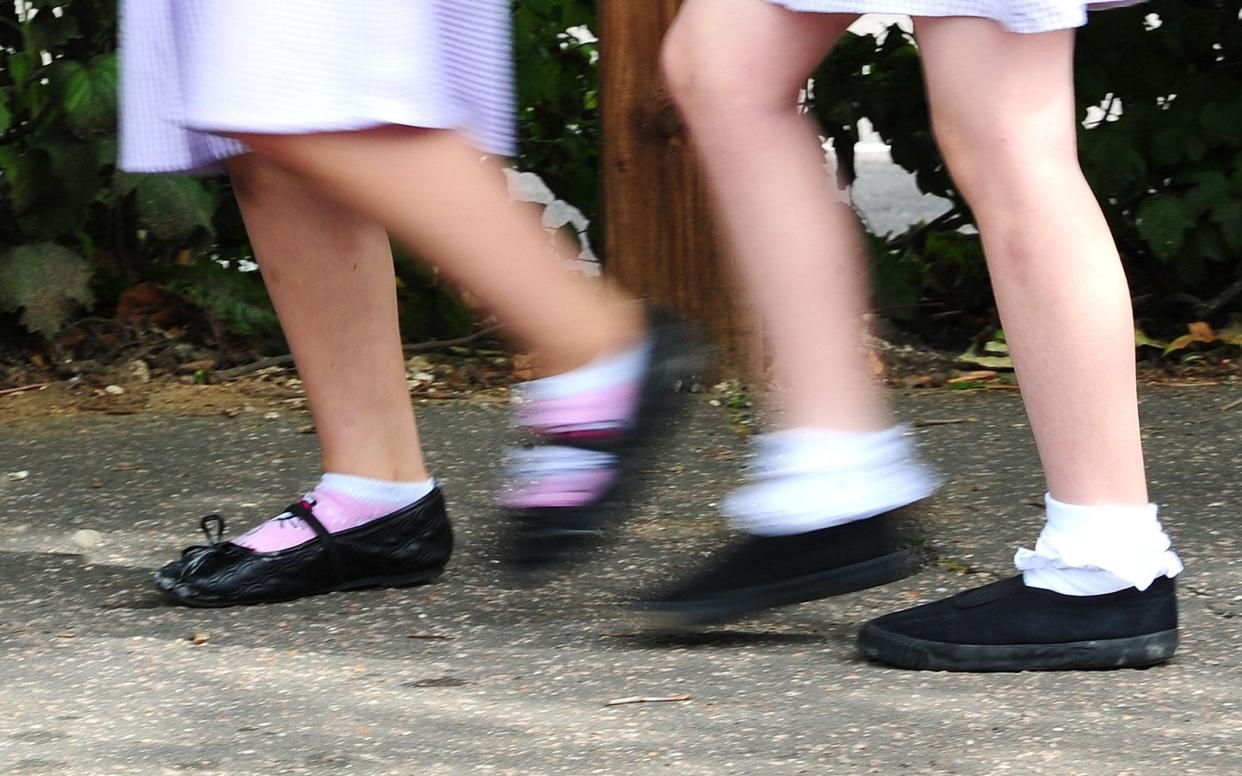Almost 200 schools ignore Government plea not to close in heatwave

Almost 200 schools across the country announced temporary closures or reduced classroom hours on Monday, despite the Government urging them to stay open during the heatwave.
Teachers warned of pupils suffering from heat exhaustion and described classrooms and play areas being dangerously hot, with activities including sports days, excursions and detentions having to be cancelled.
It came as NHS bosses said hospital patients who are fit to leave will be kept in longer if their homes are deemed too hot to discharge them.
Steve Barclay, the Health Secretary, warned that significant pressures on ambulance services in England were being “compounded” by the extreme heat.
Emergency services were already under significant strain, with official statistics for June showing that ambulance response times for stroke patients were almost three times the national target.
Following a meeting of the Cobra emergency committee, Mr Barclay suggested the worst may be yet to come with higher temperatures expected on Tuesday.
He said: “We’re seeing an increase in calls and the extra resource we have put in place is to manage that.
“But there’s also a time lag in the data because the highest point of the expected heatwave is actually going to be tomorrow afternoon.
“So that’s the point of maximum concern, but we’re seeing an increase in calls.”

The Department for Education said that it was not advising schools to close during high temperatures, but school leaders “should make sure they take any steps necessary to make sure children are safe and comfortable”.
However, in Buckinghamshire, 44 schools said they would move to remote learning or adjust their opening hours on Monday because of the “red extreme heat warning” in force for Monday and Tuesday. Some schools said they were closing because of low water supply.
Co-op Academy Southfield, a special school in Bradford, said it had closed on Monday because there was “no water” in the school. In Oxfordshire, 36 schools announced plans to either close or reduce opening hours on Monday and Tuesday.
At least a dozen schools announced similar measures in other areas of the country such as Norfolk and Cambridgeshire.
Ashwicken Church of England Primary School in Norfolk sent pupils home after the artificial grass in the school field reached 50°C. Sophie Dickson, headteacher, said: “New schools are not being built with these higher temperatures in mind and there is little help to make things better.
“The main reason for closing was classroom temperature not outside temperatures but with a risk assessment in place, I felt there was no suitable place to take children if the heat increased.”
Chris Dyson, head teacher at Parklands Primary School in Leeds said it was “agony” managing in the heat, but that the school would stay open. He said that 160 pupils were absent on Monday and 10 pupils had to be taken home because they were suffering from heat exhaustion.
Some parents criticised schools for closing early and cancelling events. Arabella Skinner, of parents group UsForThem, said: “Decisions about school closures and cancellations of excursions have to be made with the children’s interests at heart. It is not always clear that the decision to close schools is the best one for many children as their home circumstances are often much worse. It reminds us of the chronic underinvestment in school buildings.”
Community services are carrying out extra checks on NHS patients’ homes around water supplies, temperatures and conditions before they are discharged. If safety concerns are raised, the patient will stay in hospital longer.
Miriam Deakin, director of policy and strategy and interim deputy chief executive at NHS Providers, said trusts were scaling back the number of planned surgeries due to operating theatres overheating, IT server rooms were being given additional cooling and staff were wearing cooler scrubs to beat the heat.
She added: “Trusts have bought up bottled water to give out to patients and staff, have ice cream vans onsite and hospital kitchens making ice lollies for their colleagues and patients.
“Trusts are also mounting fans and installing industrial cooling units where possible, and considering the impact of the heatwave in their discharge assessment of patients.”
Patients have also been warned to move medicines out of the sun and store them in the coolest part of the home.
Sana Din, of the National Pharmacy Association, said excessive heat can make medicines “less effective”.
“The advice is usually to store medicines in a cool place, away from direct sunlight and at a temperature below 25°C unless the packaging states otherwise. Also, try to avoid storing medicines in humid rooms such as bathrooms, and medicines should not be left in hot cars even for a short while,” they said.


